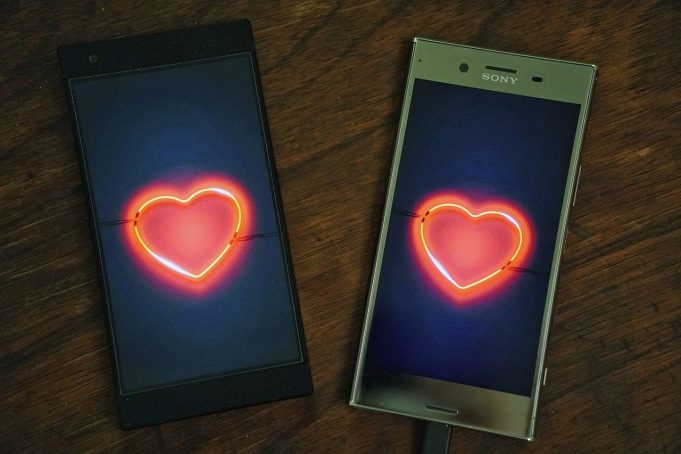Over the course of the pandemic, finding love has been more challenging than ever. From periods of time spent in our home to the closure of bars and other places where you might hope to meet someone special, it has been a particularly hard time for singles. It’s no surprise, therefore, that so many people have turned to dating apps. 2020 was the biggest year on record for dating apps, with 270 million global users and global revenue of $3.08 billion.
Today, it feels like there’s an app for all kinds of dating, whether you’re on the search for something casual or ready for a committed long-term relationship. During COVID-19, many users turned to apps for a sense of companionship, even if they knew nothing was likely to come of it when in-person dating was impossible. However, with the rollout of vaccinations, people are beginning to see a light at the end of the tunnel. With this light comes a more serious look at their dating habits.
A spike in paid users post-COVID?
According to Tinder’s chief executive, Elie Seidman, Tinder’s data reveals that new sign-ups for premium memberships pick up when lockdowns start to ease. This indicates that those casual users, swiping somewhat aimlessly through potential matches, become more serious when in-person dating is back on the table.
With an estimated 15 million single people in the UK and a reported 2.6 million people who say that they “often or always” feel lonely, it makes sense that more people are beginning to fork out for the real deal. When the current lockdown eases, paying users a set to increase in dating apps. The only question left is which app is the best value for money when it comes to finding your perfect match?
Tinder Gold (1 month) – £7.49 per month
The cheapest app, and the one that dominates the field, is Tinder. Users can enjoy a Tinder Gold account for under £10 a month in the hope to increase their matches. With premium comes the option of more super-likes, one monthly ‘boost’ in which your profile will rocket to the top of other people’s lists, and the option to rewind if you make a drastic swiping mistake.
Who is it best for?
Generally speaking, Tinder is thought to be great for young people, especially those who live in big cities and are on the lookout for a more casual dating experience.
Hinge Preferred (1 month) – £19.99
Looking to spend a bit more in the hope for something a bit more serious? Why not give Hinge a go? Hinge is an app that prides itself on the fact that its users don’t take things at face value. With prompts and questions as well as pictures, this app allows you to build up your profile in the hope that it will reflect the real you. A latecomer to the dating app scene, Hinge has seen success throughout the pandemic, with almost half of its users (52%) having been on a video date over lockdown.
If you’re looking for something long-term and you have specific requirements in a partner, then paying for Hinge Preferred allows you to add additional filters and gives you an unlimited number of likes to use.
Who is it best for?
Hinge is generally targeted at 18–35 year-olds, but unlike Tinder, it’s associated more for those who are looking for a serious relationship. The app’s tagline, ‘designed to be deleted’, promises that true love is only one question or prompt away.
Bumble Boost (1 month) – £20.99
Next up, for those women who love making the first move, we have Bumble. Generally thought of as the female-friendly Tinder, Bumble requires its female members to initiate conversations once a match has been made. Because of this, you can feel a bit put on the spot! Don’t worry though – with Bumble’s premium account, Bumble Boost, you can extend your matches by 24 hours and give yourself a bit more time. Boost also allows you to re-match with expired connections and see everyone who’s swiped right on you.
Who is it best for?
Although it is largely thought of as a better option for long-term relationships than Tinder, it generally falls into the same category of being perfect for young daters who are looking for some flirty messaging and casual dating.
Match.com Premium (1 month) – £29.99 per month
Things are getting serious now. Match.com is considered one of the more mature dating apps, although it is targeted at millennials and older generations alike. If you’re looking for a serious relationship after the long months of various lockdowns, then Match.com could be the perfect option for you.
With a premium account for just under £30 per month, you can utilise Match’s monthly boost feature that will send you to the top of other people’s matches along with a yearly review of your profile from the staff at Match.
Who is it best for?
Those who are looking to settle down and find a serious relationship. The largest portion of its users are in the 35-to-44 demographic, who account for 27% of users.
Whether you’re looking for a casual post-lockdown fling or you’ve got a diamond engagement ring in mind, perhaps it’s time to get serious about striving for what you want. By investing in your dating app of choice, you just could find exactly what you’re looking for.
Sources
https://www.vidaselect.com/tinder-plus-vs-tinder-gold/
https://www.vidaselect.com/what-is-tinder/
https://www.askmen.com/dating/dating_advice/2020-dating-app-stats-from-tinder-bumble-and-hinge.htmlhttps://hingeapp.zendesk.com/hc/en-us/articles/360003873194-Free-Hinge-Membership-Preferred-Subscriptions
https://www.theguardian.com/lifeandstyle/2019/dec/02/newly-single-a-beginners-guide-to-the-best-dating-apps
6 Reasons Bumble Boost Is Worth Every Dime in 2021 (and How to Maximize It)
https://www.diffen.com/difference/Match.com_vs_eHarmony
https://www.datingscout.co.uk/tinder/review










